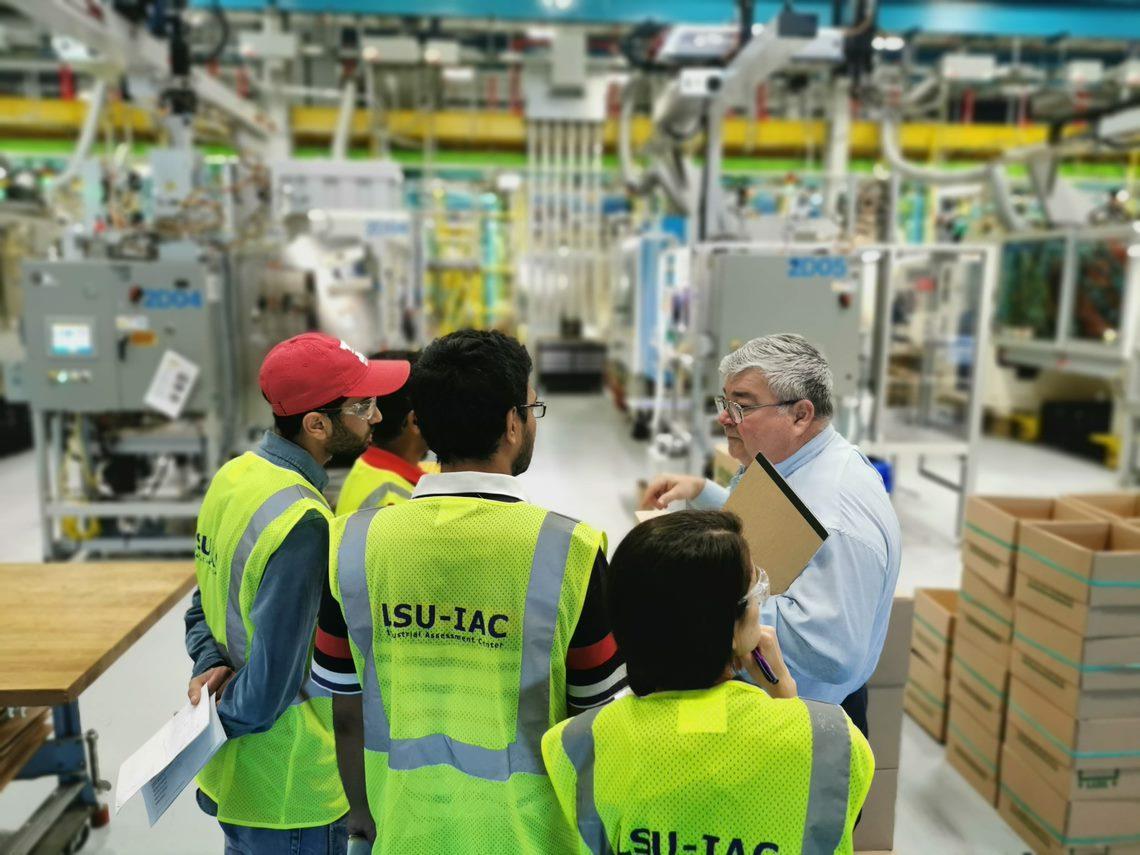The LSU Industrial Assessment Center (LSU-IAC) offers free consultation services to Louisiana businesses whose annual energy bills fall between $100,000 and $2.5 million.
A team of undergraduate students, graduate students and trained faculty spend a day surveying a business and identifying sources of inefficiency and waste. They then make recommendations to promote energy savings, minimize waste and reduce pollution costs.
The program exists at other universities across the country, including the University of Alabama and University of Florida. It is funded by the U.S. Department of Energy and has nationally provided over 17,000 assessments with an average of $130,000 in identified potential savings for businesses.
LSU-IAC is headed by Director Jonathan Shi, Art Favre Chair professor in LSU’s Bert S. Turner Department of Construction Management. “LSU-IAC has two goals: to provide free industrial assessment to help manufacturers reduce cost and increase potential savings in areas like energy efficiency, waste minimization, pollution prevention and productivity; and to train engineering students by engaging them in the process,” Shi said.
The program started in 2016. Earlier, there were similar collaborative efforts from different programs like the Chemical Manufacturing Initiative, Shi said. Since then, it has serviced many Louisiana businesses.
“We focus on small-to-medium manufacturers. We do 17 [businesses] in a year, averaging about two in a month,” Shi said. “Among others we’ve worked are Baton Rouge Water, Cornerstone Chemical and Tin Roof Brewing Company.”
Shi said IAC teams often make recommendations for lighting. He described a shipyard in New Orleans using incandescent bulbs that saw over 30% reductions in cost after switching to LED lights.
The students involved in these energy audits are usually engineering majors, but Shi said construction majors have gone out as well.
Because the program is federally funded, all students performing audits in the community are paid.
“I think this is a very good experience for undergraduate students,” Shi said. “First of all, they get paid for about 20 hours a month. Second, they go out to real world businesses and get to talk to people like plant managers, and get to understand their problems and try to figure out how to solve these real world problems.”
Federally-funded LSU program offers energy efficiency advice to local businesses
November 6, 2019
A group of LSU-IAC students consult with am employee from Intralox, a conveyor equipment manufacturer.





